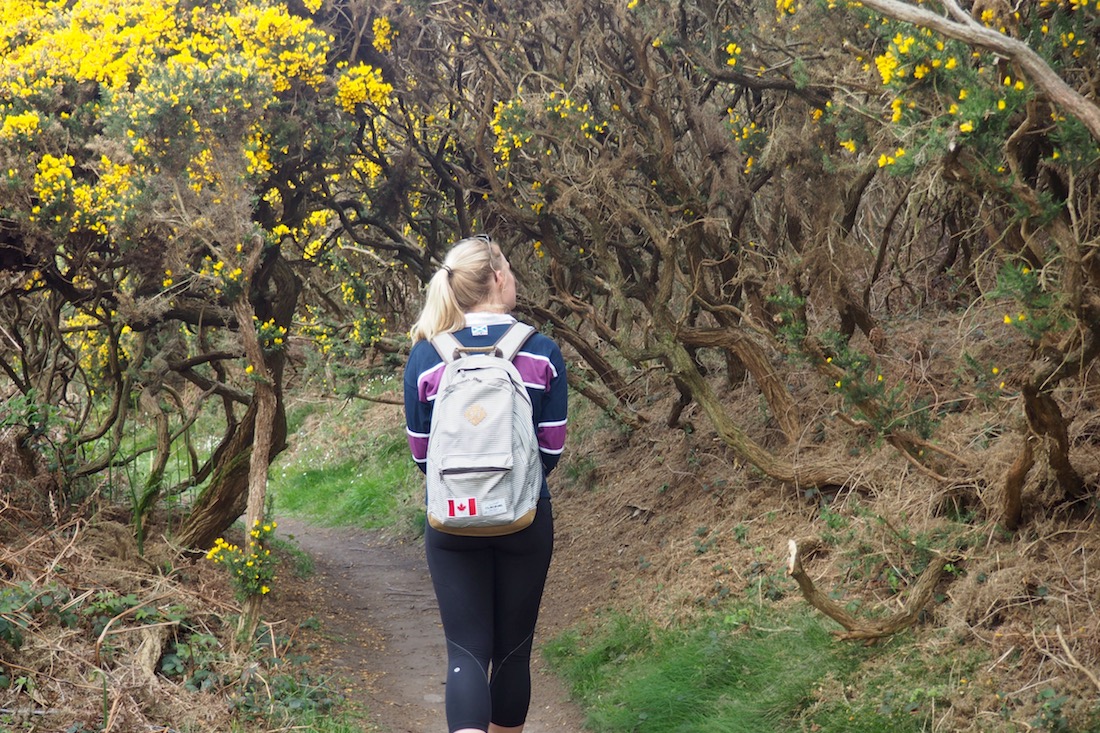Before I went on exchange last winter, my mum sewed a small Canadian flag to my backpack. I was apprehensive: It felt like a a bold, definitive declaration of my nationality. As an anonymous traveller, your country of origin comes to define you, and I wasn’t sure I was ready to become the ‘Canadian girl.’ With more experience living outside of Canada, I was, after all, a bit of a fraud.
Despite my Canadian passport, I did not spend the first 14 years of my life attending hockey games and enjoying poutine. While I could name more capital cities than most adults, I couldn’t distinguish Nova Scotia from Manitoba, and I thought Parliament Hill was in Toronto. I was also a really terrible skater.
Between Singapore, New Zealand, and Germany, my parents ensured that, rather than growing up Canadian, my childhood was characterized by becoming a part of many cultures. I tried to learn Mandarin and German while commemorating Anzac day and celebrating Diwali. When the students at my elementary school wore their traditional outfits once a year, I was always jealous of the little girls who could wear their colourful saris or delicate cheongsams; I felt strange in my green-and-yellow kilt with a maple leaf pinned to my back. During annual visits to Canada and England, relatives were always eager to share their homes with their international family. Even though I loved summers surrounded by family, I never really considered what it might be like to live in the place that I’m from.
As a result of my mother’s fervent hopes that my brother and I would grow roots in Canada before leaving for university, we eventually relocated to Toronto. Without the shield of being foreign, I quickly realized I faced a trial far more difficult than keeping in touch with old friends or making new ones: Being a Canadian in Canada.
Among an international crowd, it’s easy to fit in, because nobody does. For those who already say ‘sorry’ and take maple syrup with their pancakes, passing as a Canadian doesn’t take a lot of effort because most foreigners won’t really know the people of a country beyond their popular stereotypes.
Even in Toronto, my family seemed to transition into Canadian life without being exposed as imposters. My brother took French classes, my dad started curling, and my mum frequented HomeSense with my grandmother. I got to see my cousins more than once a year, and I learned how difficult portaging is. My name and appearance meant I was privileged to never have to explain how I was Canadian, and my new friends were more interested in discussing the first Hunger Games instalment than where each of us was born.
Somewhere between going camping on Canada Day and learning the national anthem, I became more Canadian. Even though I would never feel as at home as someone who grew up here, I still lost the right to identify as an international kid. It was an inevitable and unwinnable struggle; when you’ve defined yourself as something for so long, it can be hard to let go.
Deciding to come to a large university in a culturally confused city was, in part, spurred by a desire to recover some semblance of foreignness. With so many people from different backgrounds, university can feel like a reprieve for the person seeking to blend comfortably into diversity.
While I might not always be proud to be Canadian, any traveller will tell you that wearing a maple leaf on your bag is a fortunate symbol to bear. I’m not entirely sure I’m a proper ‘Canadian’ yet, but I still have the flag on my backpack—and I think that means something.









